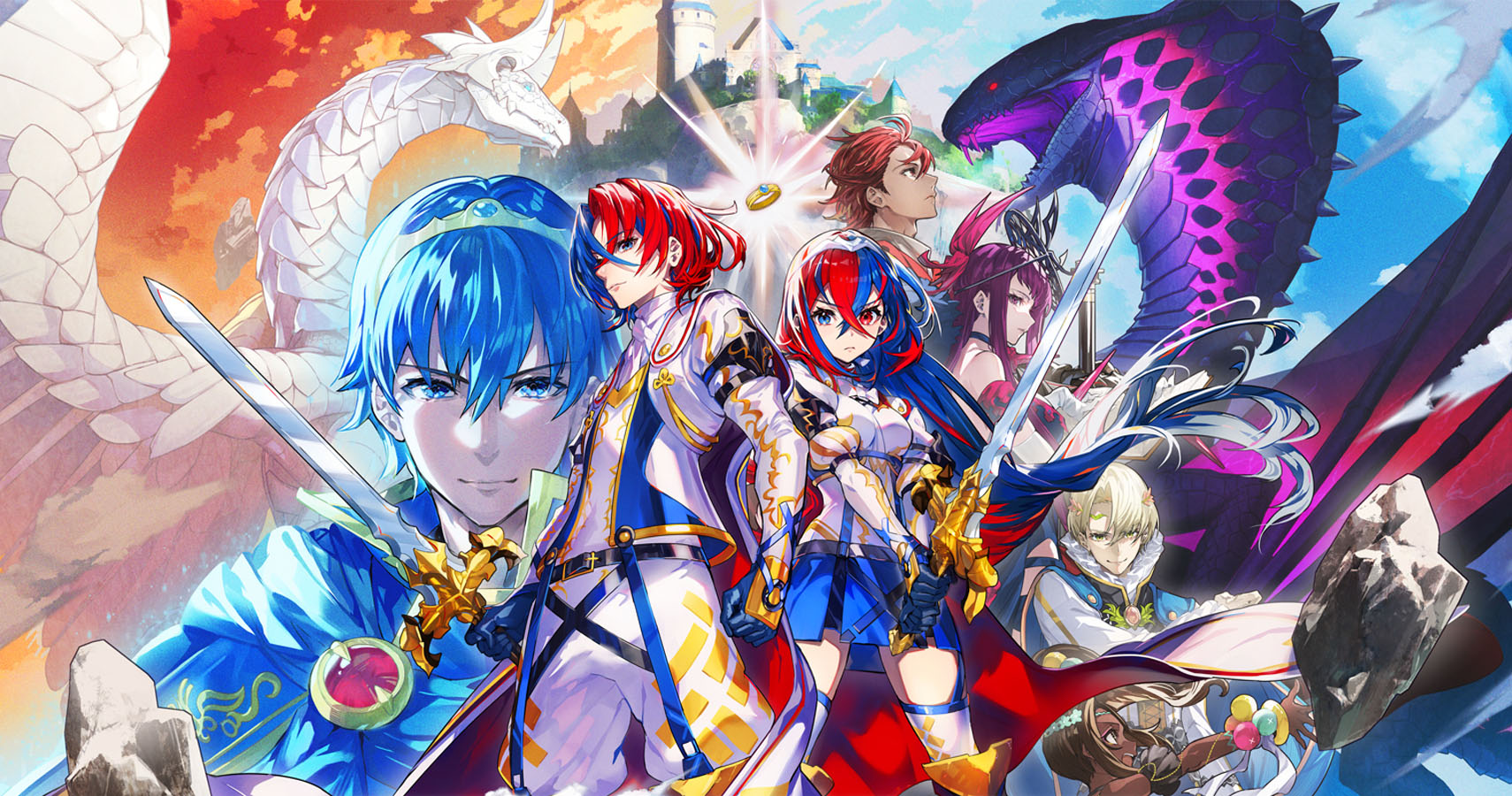
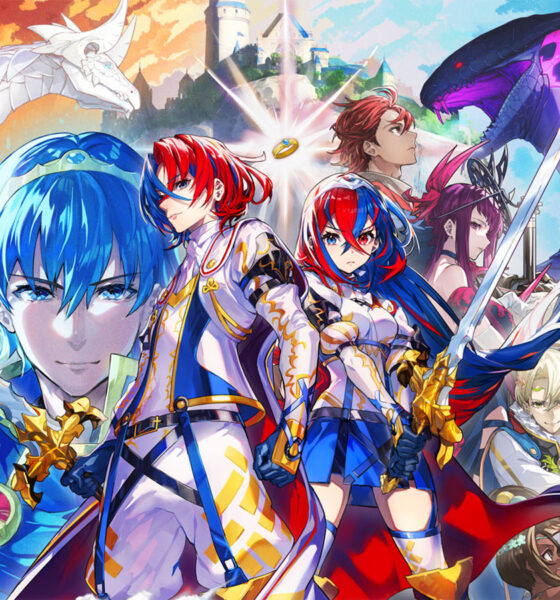
Features
Fire Emblem Engage’s Narrative is a Disappointment
Fire Emblem‘s storytelling deserves better, has been better, and is better than Engage.
This article contains spoilers for Fire Emblem Engage and the entire franchise.
Fire Emblem’s track record with storytelling certainly isn’t pristine, but it’s impressive in its own right. Fire Emblem has managed to tell some genuinely great stories in its 30+ year history. Games like Genealogy of the Holy War, Thracia 776, Path of Radiance, Radiant Dawn, and Three Houses all thrive thanks to strong emotional beats, well-developed political conflicts, and just enough moral complexity to keep things interesting. They’re engaging from start to finish and immerse you in dynamic worlds that are fundamentally reshaped with each conflict. They’re unashamedly fantastical but rooted in rich medieval settings that help keep things relatively grounded.
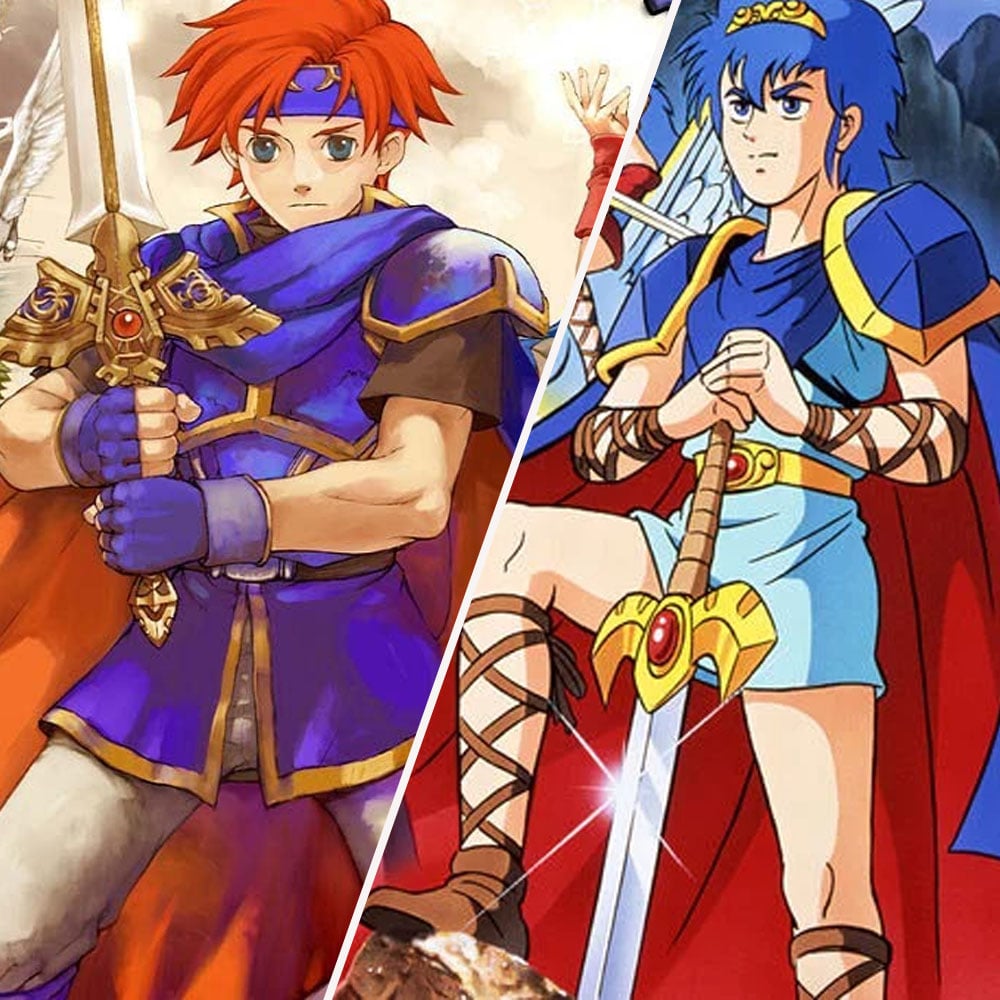
Even the series’ simpler stories that are by all accounts generic are carried by strong writing, likable core characters, and a tactful tonal balance. Shadow Dragon is a faithful remake of the first game, right down to its pace and plot. What should feel like a bog-standard RPG story is instead treated with an incredible amount of respect, featuring some of the best writing and atmosphere in the series. Marth is a well-defined protagonist with a strong motivation and personality that makes him easy to root for and sympathize with in kind. The Binding Blade is essentially a retelling of Marth’s arc with none of Shadow Dragon’s context to keep you emotionally invested, yet the story still lands thanks to an interesting setting, the presence Zephiel carries as an antagonist, and a deeper cast courtesy of support conversations.
The end results are narratives that are ultimately more than the sum of their parts; a sentiment that holds true for most of the series. The Blazing Blade, Awakening, and Shadows of Valentia all have notable enough flaws, but their plots are strong enough to overcome most thematic and logistical hiccups. You can nitpick about any of them all day long, but it’s important not to forget the heart of each story. It sucks that Awakening cycles through multiple villains while giving none enough time to stand out, but the focus is primarily on the complex relationships between Chrom, Robin, and Lucina, which the script does handle well. Alm probably shouldn’t have been secret royalty to better line up with his arc’s themes, but Shadows of Valentia at least uses his background as a means to discuss nature versus nurture, introducing Berkut as a compelling foil to fulfill this purpose.
Fire Emblem stories have their weak moments, but weak stories are very much not the norm. You can count the genuinely bad Fire Emblem stories on one hand and most of them have “Fates” in the title. Unfortunately, that same hand now wears Engage on its ring finger. For a game meant to celebrate three decades of Fire Emblem history, it’s hard to figure out why Intelligent Systems chose to approach Engage’s narrative from such a “unique” perspective. It would be one thing if Engage were simply generic and repetitive–yet another retread of Shadow Dragon or Mystery of the Emblem in a series full of them where a disposed prince saves their homeland through the power of friendship. It would have been its own breed of disappointment, of course, but almost undoubtedly better than what we’re stuck with. Fire Emblem Engage’s story is a disappointment on virtually every level.

In practice, Engage feels like a celebration of Fire Emblem Fates. Which is to say, great gameplay and a horrendous story. It doesn’t help that Engage inherits some of the worst plot beats from Fates right out the gate. Characters constantly worship you, quite literally now since the main character Alear is a straight-up deity. The amnesiac protagonist reunites with their mother only for her to die shortly afterward. The main characters themselves die near the end of their story and almost immediately come back to life through miraculous circumstances, undergoing no significant change despite experiencing something as intense as death.
A few bad moments don’t make a bad story, though. Engage struggles on a fundamental level. The story’s direction is a mess with poorly defined stakes, minimal tension, and no time dedicated to fleshing out important characters or concepts. Nothing ever has the chance to breathe as Engage crumbles under the weight of unsatisfying and simply poor plotting.
What are intended to be emotional moments happen far too early in the story while still expecting a sincere reaction out of the audience. The reaction Lumera’s early death tries to get out of the player is almost insulting. The story makes it a point to clarify that Alear has amnesia and does not remember their mother. This one detail alone makes what should be a gut-wrenching breakdown downright embarrassing. Doubly so because of a pinky promise callback that happens mere minutes after it had been established.
An immediate payoff for something that’s just been introduced will always fall flat. It means nothing when Lumera dies in Alear’s arms. Even without the amnesia sub-plot, it’s a jarringly quick turnaround. Alear wakes up from a 1,000-year slumber, meets their mother, and loses her in the span of three chapters. Lumera is introduced and killed essentially back-to-back, and it’s sincerely framed as a big, dramatic moment, but the player and Alear does not know her yet. The moment isn’t earned. It’s like Engage is always rushing to get to the next plot beat, never giving anything the individual care it needs to flourish.
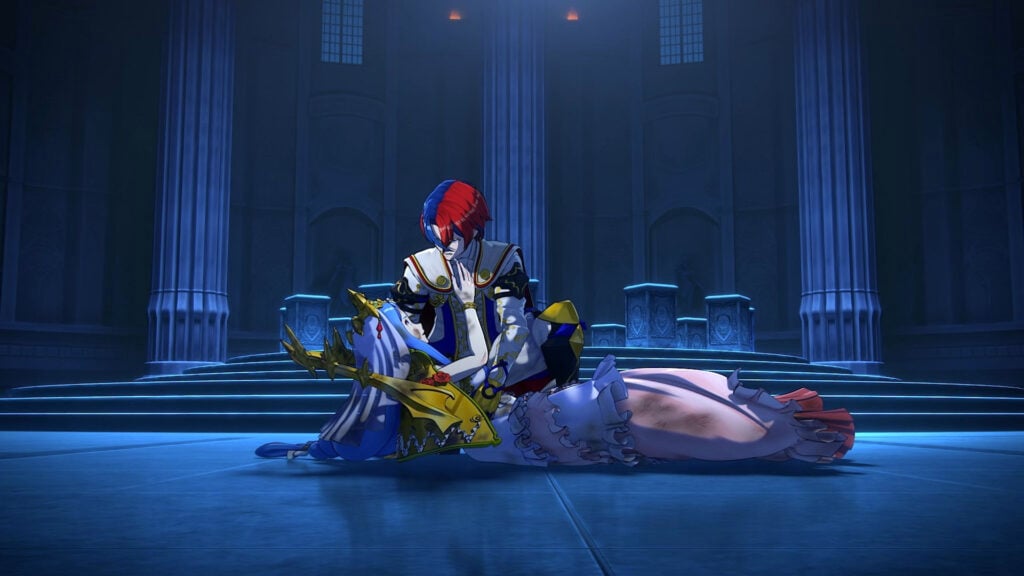
It’s the same deal when Veyle steals the party’s Emblem Rings a little under halfway through the game. Losing every Emblem Ring is good gameplay and story integration in theory, but it’s handled too sloppily in-game. It’s all a matter of context. You can create an engaging scenario where the party has their Rings stolen and it doesn’t feel contrived: after a hard-fought battle, Alear’s party does not have the energy to fight off the Four Hounds, and Veyle takes their rings through brute force. That’s not what happens, though. Instead, Veyle just slips the Rings off Alear while they’re distracted mid-conversation with the Hounds. Alear and their party now look like incompetents who can’t even pay attention to what’s on their fingers, outmaneuvered in the dumbest way possible. We also don’t know Veyle well enough for the betrayal to really hit, which is just as true for Alear.
They’ve barely had any interactions up to this point and don’t even have a defined relationship. The script wants you to think of them as such, but they’re not really friends yet. They’re strangers who know each other. Veyle can’t be a character we’re invested in with how little screen time she’s been given. Her turn and Alear’s rage at losing the Emblem Rings lose their impact because the story didn’t do enough to build to the moment’s drama. It’s also just hard to take Alear missing Marth seriously when Emblem spirits have the emotional depth of a Tamagotchi. They’re not real characters and each attempt the story makes to treat them as such falls on its face. For newcomers, Emblems are basically one-dimensional Force Ghosts who exist to spew out exposition. For veterans, they’re utility tools dressed up as pandering fan service. It’s like watching a child get their toys taken away by a schoolyard bully.
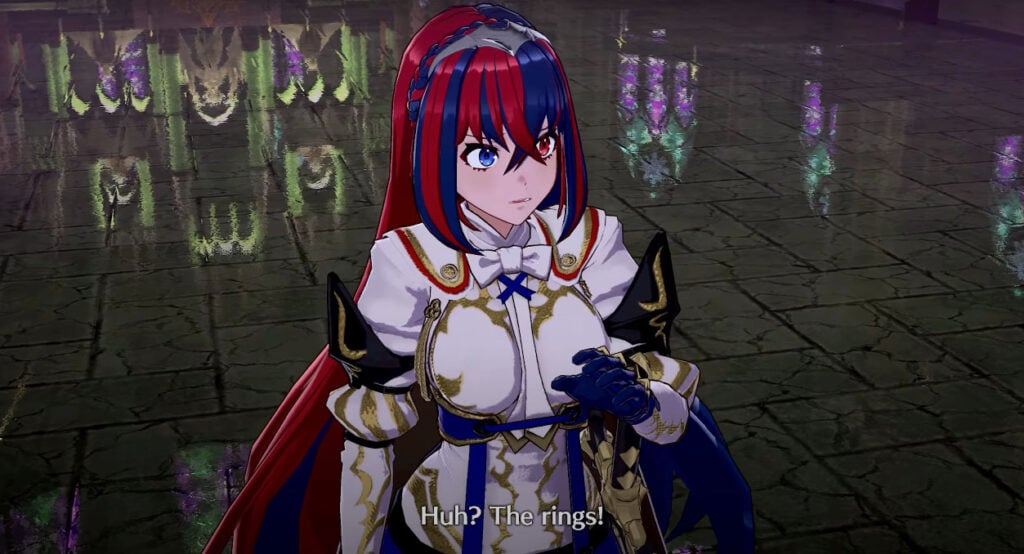
This is Engage’s “all is lost” moment and it’s laughable. It doesn’t help that the story is too uncomfortable to make you feel the loss for long. Gameplay-wise, you get new Rings in the very same chapter you lose them, which softens the blow considerably. There’s no narrative tension, either, because the Emblem Rings are the main characters of the series. Of course, nothing bad will actually happen to them. And unsurprisingly, nothing does. The moment they get taken away, you immediately understand that you will regain all of them in due time. The story even has the audacity to deprive you of your Emblem Rings a second time closer to the end, but you regain access to them almost immediately. No stakes, no tension, no real consequence.
Later emotional moments are just as bewildering and rush to get themselves over with. Lumera is revived as a Corrupted near the end of the story, only to die again in the very chapter she’s reintroduced. The drama that’s invoked from Alear needing to kill their mother both comes out of nowhere and feels exhaustingly repetitive as the third resurrection in the last act. Alear themself dies and comes back to life twice in Engage, in two successive chapters. Alfred and Vander barely react to their god’s first death while no one seems too choked up when Alear dies a second time. It’s like they already read Engage’s script in advance. No need to shed tears when the Divine One is coming back to life in two minutes. There’s just no time to feel any loss, but worse, it’s a waste of a great gameplay & story opportunity.
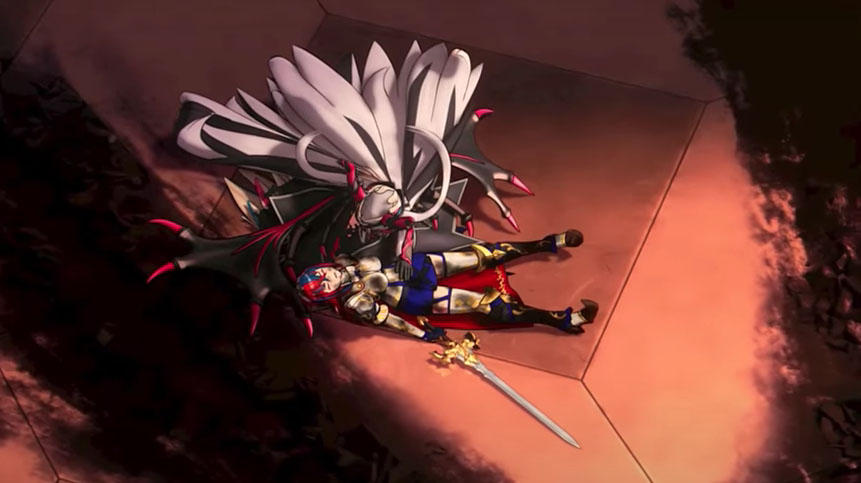
The least Engage could have done was keep Alear dead for a whole chapter and focus on the party’s attempt to move on without them. Or better yet, nix Corrupted Lumera altogether and lean into Corrupted Alear as a concept, making them the boss of the next chapter. What we get lacks substance. There’s also a lot of tonal dissonance at play. Engage is both littered with over-the-top drama and an aggressive amount of silliness. It’s a hard story to take seriously because the game front-loads a lot of comedy and opens on a bad foot.

Clanne & Framme’s exaggerated reactions to Alear waking up are groan-worthy first impressions. Alcryst’s introduction goes from tense to embarrassing all for a cheap laugh. Quirky characters talk about their “horseys” in the heat of the combat, or greet you with a colloquial “Hiya Papaya” and other zany expressions. Fire Emblem’s always had its share of weirdos, but Engage’s cast is like watching aliens mimic human speech. Engage settles into the wrong tone for so long that by the time the story does start to get more serious in its last act, the poor dialogue has conditioned you not to take anything seriously.
Sentiments like wanting to be a “good dragon” are just hard to take seriously. It’s childish gibberish. A nebulous statement devoid of substance–a completely unrelatable feeling used in place of developing an actual motivation for both Alear and Veyle. Previous games had great emotional moments that felt grounded in real human behavior, even down to the little beats you might miss or just take for granted. Marth and Nyna share a tragic conversation at the end of Shadow Dragon if you let Caeda die. Matthew mourns Leila in one of The Blazing Blade’s standout scenes, and neither character is particularly important to the plot. Chapter 10 of Three Houses makes you revel in raw sorrow all month-long by fully committing to Byleth’s grief.
These moments land because their stories put genuine care into their characters and their hardships. Marth and Nyna combined have less dialogue than any one of Engage’s playable characters, but their arcs land better because Shadow Dragon does more with less compared to what Engage does with its copious amount of text. Matthew and Leila are side characters who have less screen time than Alear and Lumera, yet Leila’s death hits so much harder than Lumera’s because Matthew’s reaction is real, earned, and the audience understands enough of their relationship to be invested in her death.
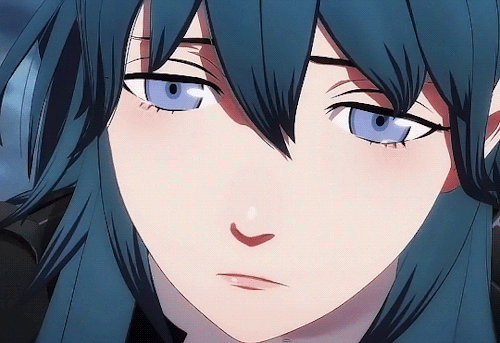
Similarly, Byleth is a silent protagonist, but their tears for Jeralt are more effective than Alear’s breakdown for Lumera. Both because Three Houses puts a considerable amount of time into getting you to care about Jeralt, and because the story regularly makes it a point to highlight Byleth’s lack of emotion. Byleth crying for the first time only when their father dies is definitely on the nose and hokey, but it works and serves an important, larger purpose: both for developing Byleth’s arc and fundamentally altering the tone of the story. It’s a strong character moment that drives the plot, pays off an early setup, and marks an important shift in the story’s priorities. That same character and story depth is almost non-existent in Engage.
There’s a good character inside Alear, but it doesn’t shine through nearly enough. They’re reserved, they do not take immediate action, and they prefer to be cautious. Refusing to fight the Corrupted at the start of the game suggests Alear will be a more strategic protagonist–they even choose to prioritize saving lives over routing a Corrupted-infested town before they’re forced into a fight. Nothing interesting though comes out of this trait, and it’s left mostly untouched. They are deeply empathetic and trusting, a fact Veyle uses against them. Alear’s beliefs and ideals never feel properly challenged beyond that, though. They don’t gain a better understanding of the world around them and themselves, or have to reevaluate, or even reaffirm, their values.

Alear’s most distinguishing trait is their divinity half the time. They do what they can to live up to the Divine Dragon’s ideals, despite actually being a Fell Dragon. In theory, this is a good twist and a solid callback to Awakening. The idea that Lumera is Alear’s found family and not their biological mother actually pairs up nicely with Fire Emblem’s own core themes, too. Every game is essentially the story of a lord building a found family for themselves. Unfortunately, Engage leaves this theme mostly in the background. Alear and Sombron share a mutual indifference for each other, which is fair enough given the circumstances but doesn’t make for a fun narrative.
In addition to this, and not helping the narrative, Alear’s backstory is revealed way too late to be taken full advantage of. They’re deprived of a genuine identity crisis and their amnesia only makes them blander. They could have spent most of the story reconciling their violent past, who they now are, who they want to be, and clarify what it actually means to be a “good dragon.” Turning narrative nonsense into a potentially relatable story about finding your place in the world and something to live for–an idea that Engage does try to invoke in its final chapters. It’s just too little, too late after a story that spins its wheels in the wrong direction for so long.
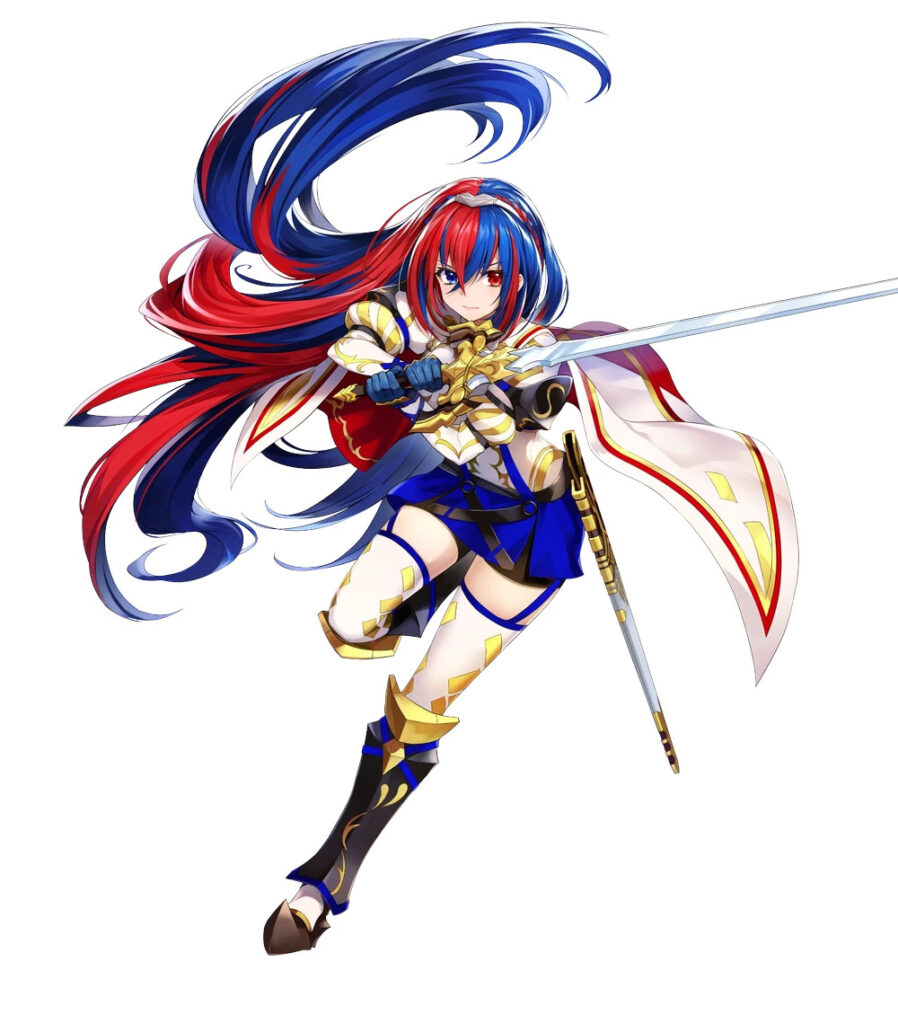
Even then, Alear’s own reaction to such a shocking twist is lackadaisical and narratively “easy.” Learning they’re a Fell Dragon doesn’t change them in a significant capacity, which is consistent with the script’s inability to let Alear falter. Everything they’re faced with, Alear immediately resolves. When confronted with the knowledge that they’re Sombron’s child, Alear decides to leave the party. Mere lines later, this internal conflict is resolved when Sigurd successfully talks them out of their (mild) crisis. Alear literally dies twice and just rolls with the punches like it’s no big deal. Death does not change them. Where is the weight? There’s no consequence for Alear’s character in Fire Emblem Engage.
Compare Alear’s arc to Ike’s from Path of Radiance or even Lyn’s from The Blazing Blade’s prologue. Their arcs aren’t bombastic or particularly nuanced, but they’re relatable where it counts and both characters undergo meaningful change through the challenges they face. Lyn goes from an orphaned nomad with no one to call family, to a young heroine who builds a family for her own and connects with her cultural roots, granting herself a deeper understanding of who she is and where she comes from. She is reshaped by the people she meets and the experiences she’s exposed to.

Ike is an outsider to the world around him, but he doesn’t let that stop him from confronting Tellius’ injustices head-on. He’s a genuine hero at a time when his world needs one more than ever. He learns from his ingrained prejudices and slowly places himself at the center of Tellius’ politics while overcoming grief and learning how to be a capable leader worthy of following in his father’s footsteps. His father’s death looms over Ike for the entire story, shaping his personality and arc throughout Path of Radiance and later Radiant Dawn.
It never feels like Alear learns anything new of value or changes. Their worldview isn’t reshaped, and when confronted with life-altering revelations, they take it in stride and carry on as they had been, no worse for wear. Nothing ever bothers them for long. Whether that be death or traveling back in time to meet their past self. They’re not emotionless, but what Alear emotionally responds to in the story is jarring. Some supports do touch on Alear’s vulnerabilities, but they’re far and few between and rarely synergize with their actual arc or enrich the main story.
Fire Emblem games don’t need a good story to be good–case in point, Engage is still quite fun despite all its narrative flaws–but the series is at its best when it can juggle both well. Or at least, without letting one half suffer for the other. Take Sacred Stones, for instance. It has neither the best gameplay nor story in the series, but what it has is the right balance. It has a simple, but compelling story with a strong cast, atmosphere, and themes; well-paced gameplay with fun map design that encourages strategy and leaves room to grind for fans looking for a more RPG-esque experience; and a tight campaign with a small number of customization options, but just enough to keep each playthrough fresh and engaging. Engage lacks that balance, and it needed it to celebrate the series properly.
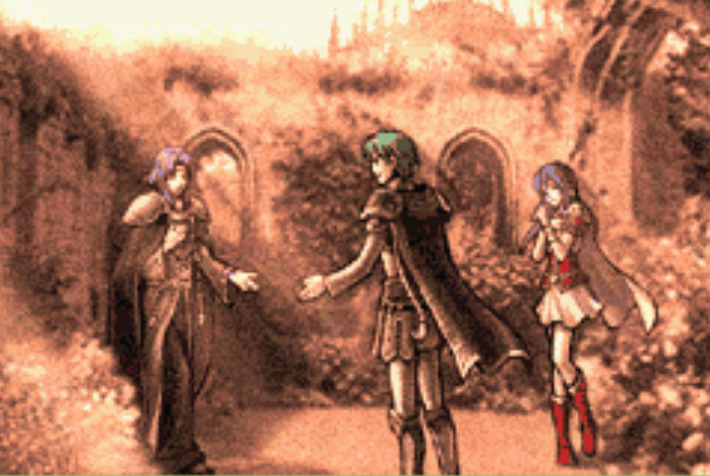
Engage does not reflect Fire Emblem’s actual storytelling conventions. The series has always cared about balancing the two in tandem. Shadow Dragon and the Blade of Light doesn’t have the same mature tone of its remake, but it takes its story seriously and slowly builds up to its bigger moments. There’s a respectable amount of depth and maturity present for an 8-bit RPG. Engage feels childish in a way previous games rarely ever did.
It undercuts itself with more levity than it needs. Villains survive countless battles so they can star in the bulk of the story, but get no development until just before their deaths. Alear and Veyle have no chemistry despite their relationship dominating most of the story. The plot itself doesn’t even commit to the potential tragedy of two siblings being torn apart and forced to fight, or Alear’s identity crisis at discovering he is not in fact a god, but more akin to a devil. Even if the rest of the story couldn’t be salvaged, there was at least an opportunity to end things on a unique, emotionally conceptual high.
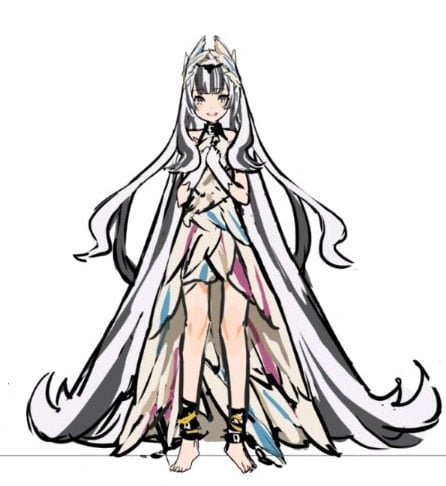
Keeping Veyle the antagonist might not have stuck the landing, but it would have been a more interesting conclusion than what Sombron offers: a grown man throwing a multiversal tantrum because his friend didn’t say goodbye. As it is, Engage’s story does not celebrate the series, nor does it tell a captivating story in its own right. It references previous games and shares some unfortunate narrative similarities, but never where it counts. What new it brings to the table, it does little with or eventually falls back on Fates’ worst habits to round itself out. Engage doesn’t even seem engaged with its own plot half the time. The script would rather tell jokes and blitz along than develop characters or flesh out themes. When the story does land on some potential gold–like Alear’s backstory–it gets tossed aside almost immediately, wasting every chance to mine some depth and nuance out of the cast.
At the end of the day, you can nitpick even the best Fire Emblem stories. Genealogy of the Holy War needs Generation II as it is for thematic purposes, but the bulk of the game’s best storytelling comes from Generation I. Awkwardly going back to the monastery each month during Three Houses’ war arc hurts the pacing at a point when all of Fódlan is erupting. Radiant Dawn throws away its grounded premise to focus on godly nonsense in its last act. All these stories suffer for their issues, but there’s enough good to outweigh the bad: charismatic leads, compelling character & political conflicts, and high stakes that are earned. If only on an emotional level.
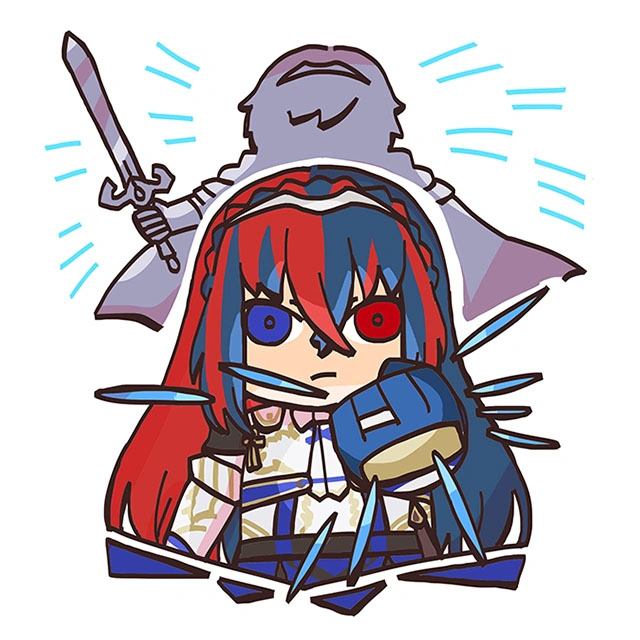
The issue with Engage is that it doesn’t have enough heart, depth, or maturity to offset its many minor issues, and those nitpicks compile into bigger problems by the end of the story. A parent dying in Fire Emblem is predictable, but it should never be laughable. Avatar worship so literal robs Alear of any interesting conflict with the cast. The villains are hollow, one-dimensional, and all fall victim to last-minute backstories that just rob their motivations of weight. The script never rises to the challenge and embraces its most interesting concepts, falling bad on bottom-of-the-barrel humor. Engage is half a “worst hits” of Fire Emblem tropes, and half new grievances to watch out for in the future.
Fire Emblem Engage follows bad precedents set by Awakening and Fates while setting some new ones of its own along the way. A lighthearted fairy tale aimed at kids can work, but not here and not like this. Not to celebrate 30 years of a series that was never quite so childish, light-hearted, and inattentive towards its own storytelling. Engage takes too many shortcuts and hinders its own potential by refusing to commit to a consistent tone and settling for what’s arguably the weakest script in the series: full of juvenile dialogue and plot beats that never live up to their potential. Three decades of Fire Emblem history calls for a better celebration than Engage. Fire Emblem deserves better, has been better, and is better than this.

-

 Features4 weeks ago
Features4 weeks agoThis Upcoming Romance Anime Might Just Break the Internet; Trailer Just Dropped!
-

 Features3 weeks ago
Features3 weeks agoDon’t Watch These 5 Fantasy Anime… Unless You Want to Be Obsessed
-

 Features2 weeks ago
Features2 weeks ago“Even if it’s used a little, it’s fine”: Demon Slayer Star Shrugs Off AI Threat
-

 Culture2 weeks ago
Culture2 weeks agoMultiplayer Online Gaming Communities Connect Players Across International Borders
-

 Game Reviews3 weeks ago
Game Reviews3 weeks agoHow Overcooked! 2 Made Ruining Friendships Fun
-

 Features4 days ago
Features4 days agoBest Cross-Platform Games for PC, PS5, Xbox, and Switch
-

 Guides3 weeks ago
Guides3 weeks agoMaking Gold in WoW: Smart, Steady, and Enjoyable
-

 Game Reviews3 weeks ago
Game Reviews3 weeks agoHow Persona 5 Royal Critiques the Cult of Success
-

 Features2 weeks ago
Features2 weeks ago8 Video Games That Gradually Get Harder
-

 Features1 week ago
Features1 week agoDon’t Miss This: Tokyo Revengers’ ‘Three Titans’ Arc Is What Fans Have Waited For!
-

 Game Reviews4 days ago
Game Reviews4 days agoFinal Fantasy VII Rebirth Review: A Worthy Successor?
-

 Guides1 week ago
Guides1 week agoHow to buy games on Steam without a credit card





















Vuvuzela
February 8, 2023 at 6:34 pm
Great read, I definitely agree with most of what you said, outside maybe that you gave a bit too much credit to Awakening–it’s still miles better than this, but beyond the rotation villain cabal, jesus some of the bits like when you, as Tactician Jesus, encounter and solve an impassable naval blockade all within one cutscene occurring in a war room are… something I would’ve felt bad about writing when I was in 5th grade.
But yeah Engage’s plot really feels like you’re watching an insufferably badly written TV show for kids with how events occur. I think there’s a time and place for the plot to move along quickly; a lot of older games like Chrono Trigger were able to just jump from plot point to plot point without lingering forever and just would take the plot a lot further with a lot of events happening where you accepted that things were just happening not everything was going to get some long, drawn-out melodramatic scene to let everything “settle in.” That indie JRPG from a couple months ago, Chained Echoes, also pulled that off really well. Playing one of those with a modern context is a bit jarring at first because you’re so used to many modern games lingering on those moments for so long with extensive melodramatic cutscenes but you get used to it. Engage tries to move at the same pace while also trying to act like you should care a lot about everything and uh. And even if the game DIDN’T have the constant tonal issues (which, as well all should know from all the Yakuzas, Final Fantasies, etc. that you can definitely pull off goofy AND serious if you know what you’re doing), Engage just misses the mark so bad. Really frustrating given how solid the maps are in this game since it’s the most I’ve enjoyed the strategy aspects of the series since the 3DS came out.